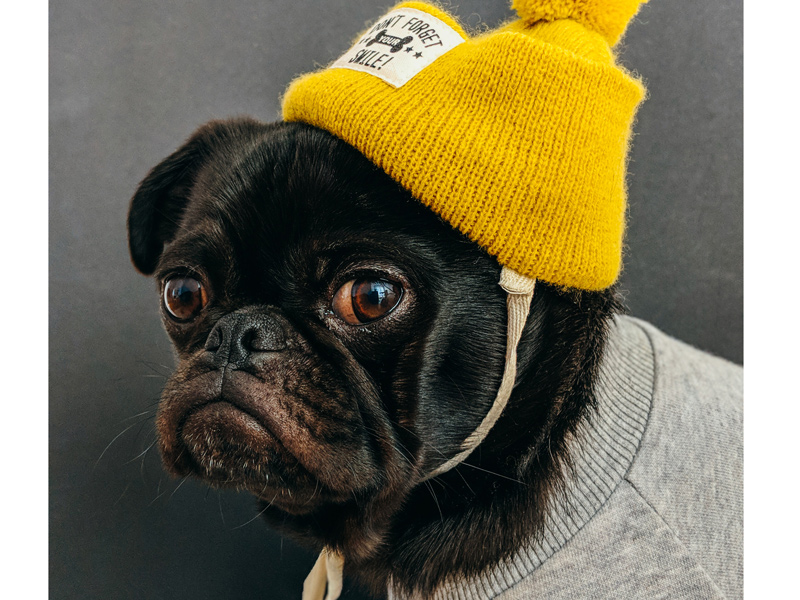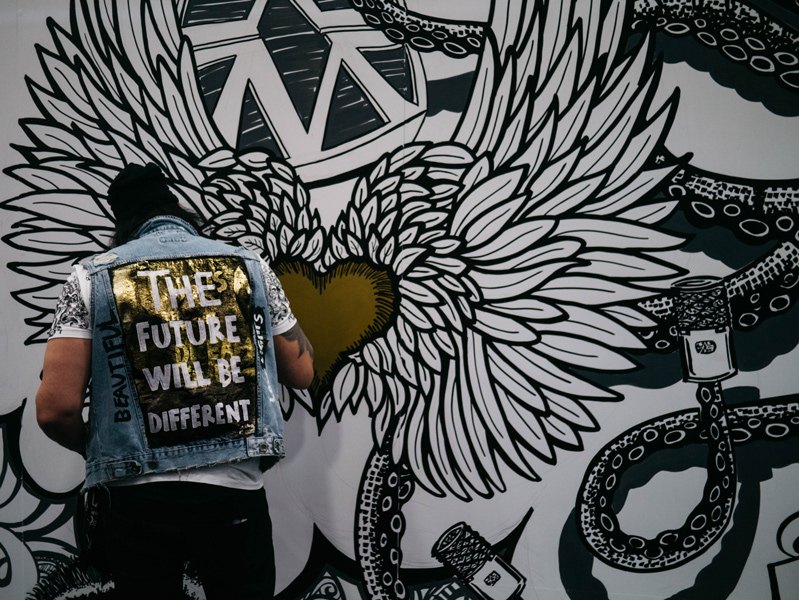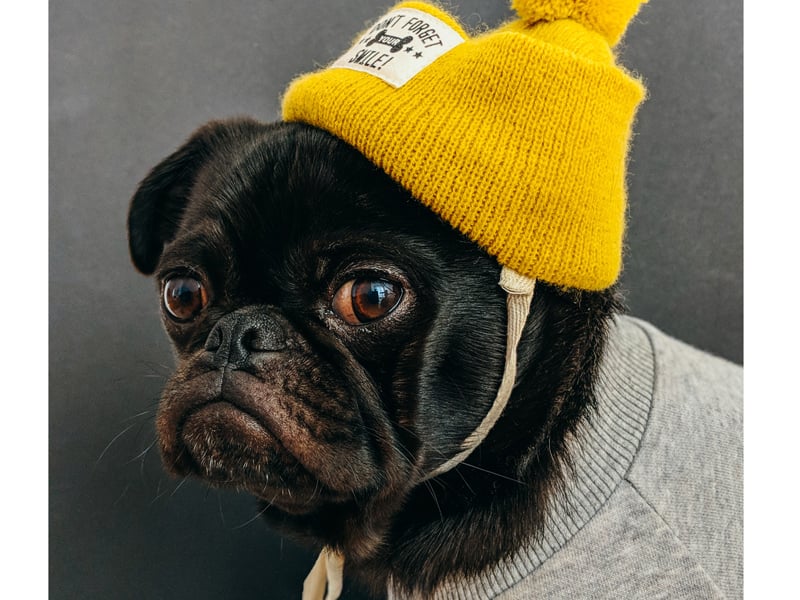Does an Event Staffing Agency need to think about branding? If so, how much of your budget or time should you spend on it? We spoke to Roberto D’Andria Bear London to bring you the very best in branding advice from an industry super star. Here is the full interview packed with incredible insight from this leading creative.
What is branding?
“You’ll hear people say ‘branding is in everything you do. It’s in every touch-point, every expression of your brands personality and behaviour. It’s how you look think and speak’ you’ll hear these things a lot. For me branding is a core purpose with a set of values and behaviours that bring that purpose to life. It is a set of core communication principles that then feature in everything you do. In the first instance that might be your communication tools – your brand identity, your brand language, your brand roll-out . It might be your key branding assets like website, print, social etc. But all of those outputs are informed by a clear core strategic communication platform. You start with that and everything spins off from there.
You might also do activations. When we did the Foxtons Brand – our purpose was to be THE London estate agent. Because we gave ourselves that core proposition, we needed to brand a fleet of cars. We thought, ‘what cars were we going to get?’ We’re going get a London car, we’re going to get a mini and we’re going to behave in London-type fashion. The new mini was just being launched at the time, and – even though they’re small – it’s what it says about the brand from a personality point of view. They were a sensation. It was really successful. We worked with Foxtons for 15 years building the brand.”
Branding IS communication
“If you asked to me what’s branding in one word – it’s “communication”. It’s what do you stand for. That can be your desk, it can be the computers you use, it can be the pictures on your walls or the colours of your walls, it can be the building you’re in. Everything is a representation of your brand, and everything communicates something about you.”
Communicating in line with your Business objectives begins with front end strategy
“Its very much about the front end. Understanding what makes somebody tick, what their business objectives are, and how your communication needs to sit alongside those objectives. We do a lot of that front end strategy and if we invest the time getting that right, everything else flows. It becomes so much easier, and quicker, and more nimble. That’s why, on our website you’ll see “cut to the chase” – which is our current philosophy. The message is, if you come with us and you do it our way, your business will be so much more efficient in the way that it communicates, you will do things faster and save money – because you will be communicating with clarity and you’re also creating communication tools – website etc – in a much easier quicker fashion because the brief is set.”
What is the importance of good branding?
“Good branding faithfully positions you for your customers, and is customer facing. Good branding is always customer focused. It’s very much answering the questions that a customer has and its doing it with personality.
“We have an expression – would you go out to dinner with your brand“
Branding is like anything, like people, it’s a personality – it can have a good personality or a bad personality. It might be a “bad” personality in the sense that it’s a naughty personality, but it’s engaging and it gets customers hooked. It doesn’t have to always be about cosseting and mollycoddling customers, sometimes it might be about challenging them and that can be just as engaging. I also think there’s a context to good branding. So for me good branding fundamentally is communication, but nowadays so much of good branding is about asking ‘is your brand useful?’ In the digital space, how is your brand behaving? And, what are the touch points, how are you helping your customer, how are you making their lives easier in the digital space?”
How do you, or Bear, go about that?
“What we do is identify who you are what you stand for and we creatively dramatise and copy write that story. Then we do a few key outputs, like print and website. Every now and then we might have blue sky ideas, like ‘let’s create a tool for the digital space’ – but we don’t go too far down that road as it’s a whole different ball game. We’re fundamentally storytellers.”
What is bad branding?
“I think bad branding is wallpaper – its just design for deigns sake. It’s when a graphic designer will create an identity and a series of messages that are so lazy, so top-line, it’s obvious they’ve not really tried to understand the client and just gone at it instinctively. That branding is here today gone tomorrow. We just don’t work like that. Everything we do is informed by really clear, sound thinking and a creative proposition. We’re super super conscientious like that. It runs through the veins of everything we do.
Bad branding doesn’t communicate business benefits – it will just be a look and a feel. What a client really wants you to do is tell the world how great they are, and what it is they do that’s different. If they don’t have any differentiators (difficult in a saturated world) you have to be innovative enough and creative enough to find something that sets them apart. A lot of branding agencies cant be arsed to do that.
What branding advice would you give to a start-up event staffing agency?
“First and foremost see branding as an investment not a cost. Get it right from the start. Maybe, due to the budget restrictions of a start-up, it doesn’t need to be a full-on strategic, heavy lavish branding project and process, but you do need to think about your brand up front. I read something really good recently – I think from Ogilvy – branding is not an add on cost, it IS your product, it’s a product cost. It’s a fundamental part of your product. I thought that was a brilliant analogy – people buy into an image and into personality. There are certain labels and brands you simply will not consider or wear because they’re not cool. And that’s the same with anything, if it’s presented in a way that is not particularly cool or relevant to you as a customer, it’s going to have a bearing on your decision no matter how good the product is.”
Importance of being Different
“Start-ups often come to us and say, ‘we’ve got something new and unique’ and they will think they’re the only player in the market. Now we’re not a deep diving research company, but we do a lot of desk research and 9/10 we can find a comparable competitor – at least in the customers eyes.
In a saturated marketplace and 8 billion people on the plant, it’s very difficult to have an original idea. The differentiator is brand. It’s the brand that will so often get you out there ahead of your competitors – for me it’s not a cost it’s an investment, because you will get it back if you do it well.”
Understand what you stand for
“Nowadays it’s not enough to say we stand for being really successful and making loads of money – customers are not interested in that. Customers are really aware of business ethics and product ethics. They are looking more and more into brands that stand for something, have a cause, have a belief system that is not only about them making profit. It might be about social change or environment, it might be the charities they support, it might be about working cultures – but one way or another they’re pushing something to the forefront more and more that they passionately believe in. Whenever we go to any client now – and we’re not the only ones – but we will push a customer to identify their purpose at the core. Even if it’s just a couple of words, identify your purpose.”
Importance of Positioning
“Make sure your brand positions you in your own unique space – unless you want to be positioned in the same space as your competitors and you just want to kill them off!
Be different – whether that’s a different colour, or if it’s more about what you say, be different (not wacky) just different. Do your homework. Own something – own an angle, a niche.
Dog’s got Personality
“I’ll use a Pulp Fiction quote – ‘dog’s got personality and personality goes a long way.’
Have a personality – don’t be afraid to express yourself and your personality – you won’t be for everyone no matter what you do. I remember some advice from a fantastic marketing manager I worked with, he said ‘the biggest risk you take is being safe.’ ”
What are the common things people get wrong?
“Easy – cutting corners. Go cheap pay twice – without a doubt. I see it over and over – admittedly there are some poor agencies out there who don’t provide value. I do respect the fact that for clients it’s difficult to identify a good agency that will service them properly – but if you go down the cheap route and you won’t get the proper advice. We don’t position ourselves as management consultants but by osmosis, because of the process we are advising clients all the time in terms of what they should and shouldn’t do. You won’t always get that if you don’t pay for a proper service. That’s a common mistake.”
Activation is as important as Guidelines
“Client’s often get to the guidelines and then stop. We’ve provided a guideline document and you get that sense from the client that it’s over, but they’ve only got to a point of activation. This would be the time to have the capacity to take it further. If you don’t have a budget to do big campaigns, at very least do social media activation. Do a refresh of things on the ground, or retail space, or office. Brand never stop sit doesn’t end at guidelines – it needs activation.”
Do you have Examples of brands that have nailed their branding?
“There’s the obvious, like Apple. But Rebull is a really good example in that they own energy – they are a purpose-driven business. They are not a drink. They’re an attitude and a way of life. Redbull is a brilliant example of super-focused purpose-driven branding. And they know how to have fun with it.
From an execution point of view it has to be Pret A Manger. Everyone always talks about branding as a logo, and some colours, and some shapes – that’s bollocks. It’s actually an attitude, a clear tone of voice. I recognise Pret’s photography more than I recognise their logo. They’ve got a behaviour, a wit. They have their own photography and feel that no one else has. They are committed to fresh food, and at the any end of any day food is given to the homeless.”
In conclusion, Roberto’s Top Tips for nailing your branding are:
- Branding is communication
- Spend time on a strategy
- Branding is an investment – it IS your product
- Stand for something
- Identify your purpose
- Have a personality
- Don’t forget about Activation
Unsplash Credits
Dog Photo by Charles Deluvio
Positioning Photo by Rawan Yasser
Be different Photo by Jiroe
Communication Photo by Kelly Sikkema
Dinner Date Photo by Matthieu Huang









